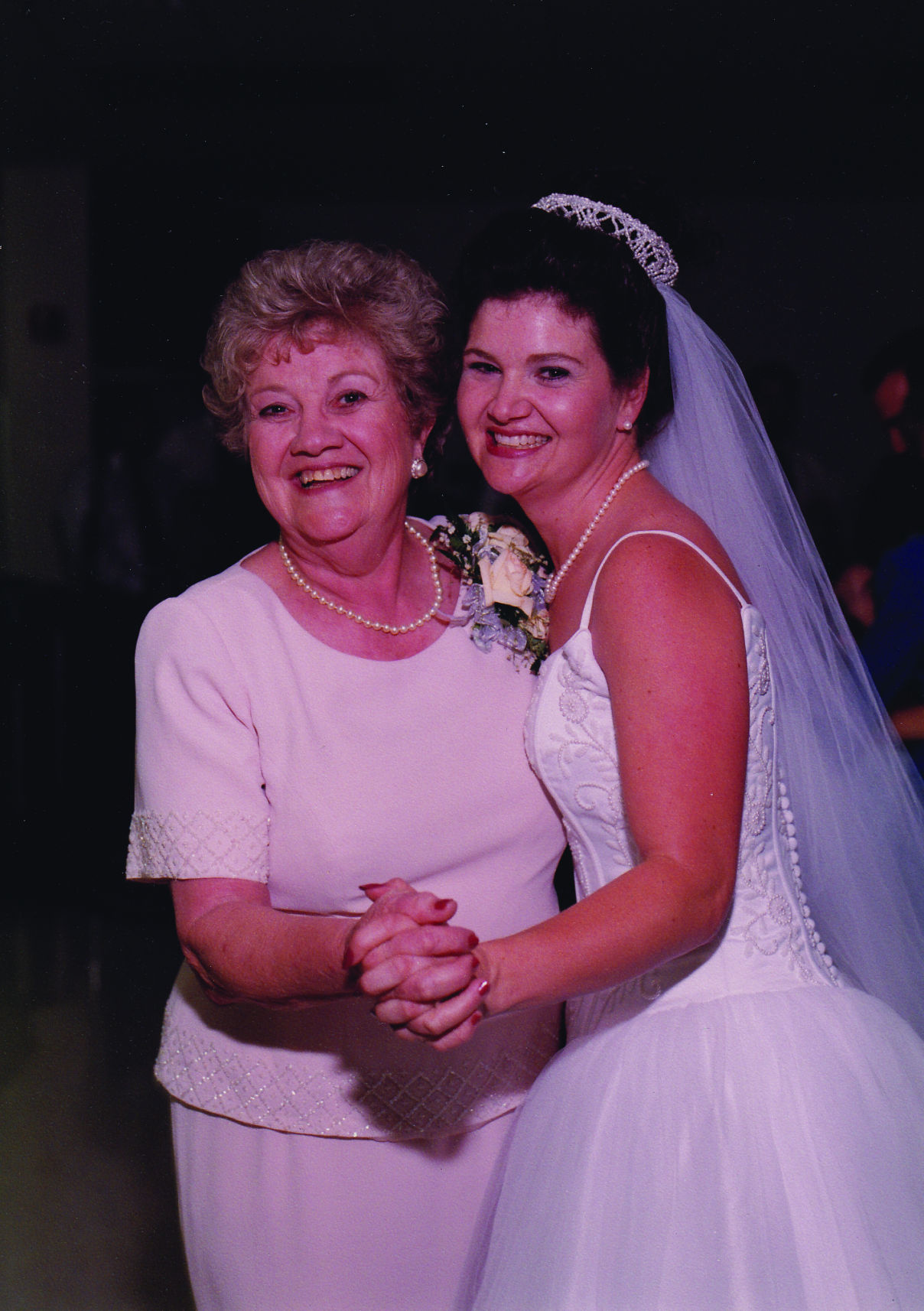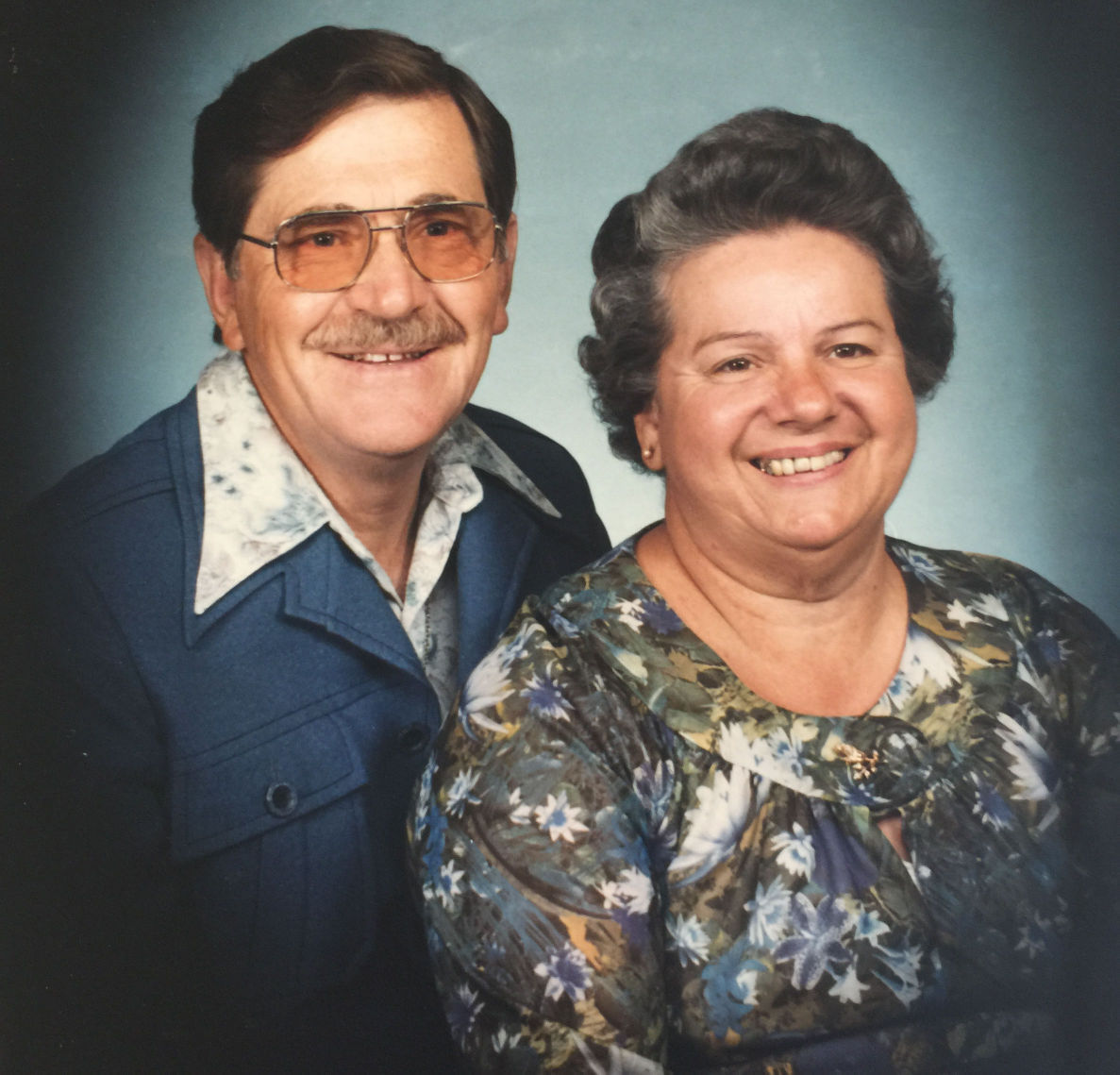
Remembering Hazel Bergeron – Cajun ambassador consoled many; made more laugh
April 7, 2015
Meet DoBee Plaisance:
April 7, 2015In a small, sparse room at a home for aging veterans, Velma Ellender embraced the man she married seven decades ago.
“We don’t know how long we’ve got,” Velma said to her husband, Willie. “We are on the diving board.”
“Yes,” Willie replied. “We are on the diving board.”
Separated by distance because Willie’s special needs require him to remain at the Southeast Louisiana War Veterans Home in Reserve, they speak on the phone every day. Velma visits regularly. But March 22, the day they marked their years together, was special in many ways.
Relatives and friends say the story of how the couple met at a Houma residence for youngsters so long ago, their continued triumphs and occasional trials, are a testament to the power of human devotion and everlasting love.
“Just being around them for an hour supercharges me.,” said a nephew, Andrus Hebert, who lives in Bourg, and was present at last month’s tender moments. “In seventy years of marriage they’ve been through more than their share of pain and tragedy, but that love connection they have, it’s so strong, so extraordinary, it’s just a bond that could never be broken.”
The story of their love is inextricably intertwined with their separate experiences at the MacDonell Children’s Methodist Home, one of the first things they found they both had in common. It was strengthened, they have said, by the shared experiences good and bad that life brought to them together.
Willie is one of five children born to Warner and Cecile Ellender of Chauvin.
When he was 13-years-old – as sometimes happened to children from impoverished local families – Willie was sent to live at the MacDonell Home, at that time operated by deaconess Ella Hooper.
He recalled in an interview being thrilled by the indoor toilets, bathtubs and clean sheets.
“It was luxury.” he says. “At mealtimes I got to sit at Miss Hooper’s table. She knew I was a growing kid with a big appetite and would give me her asparagus. She knew I liked it. There would be a teacher at every table at mealtime to monitor our behavior and instruct us on manners and other proper behavior. Though we got fed three times a day it never seemed to fill me up.”
Boys at the home lived in a 4-story building, divided up by age. Days started at 6 a.m., with a 7 a.m. breakfast or oatmeal or grits, followed by a half-day of school and chores.
“We cleaned the buildings, furnished the coal, milked the cows, fed the chickens and picked the eggs,” Willie said. “We had a mule to plow the garden. We would plant it, tend it and then sell the vegetables from carts we rolled through the surrounding neighborhoods.”
They attended Methodist church services on campus.
“Miss Hooper was the sweetest, most compassionate, loving and kind woman,” he said, regarding the founder of the home, which operates to this day as MacDonell Children’s Services. “We were lucky she was in charge. She was never mean or bossy. She never raised her voice. She didn’t have to. We all knew what she expected of us and only feared we might disappoint her.”
In 1941, at the age of 17, Willie saw a billboard that said JOIN THE NAVY. SEE THE WORLD., and that’s just what he did.
While Willie was spending his teens at the MacDonell home, Velma Lafort – a Slidell native – spent her own formative years as one of eight children of a trapping and hunting family in Leeville.
There was no school for Velma, who spent days with her sisters doing household chores while her brothers went shrimping.
In 1941, under circumstances similar to those that brought Willie to MacDonell, Velma took up residence at the home. Willie was in service to his country by then, but Velma heard the stories about “the boy who just left to join the Navy.”
At the MacDonell Velma, along with the other girls, spent her days sewing, cooking, laundry and cleaning.
“The more mature girls helped cook the evening meals. It was an honor to get picked to help cook,” she recalled. “It was one of the ways they rewarded you for staying out of trouble. I was so happy and excited when I got picked to cook the grits. Because the pot was so big and I was so short they made me a little stool to stand on.”
Though Velma’s parents could not afford room and board for her at MacDonell, the family sometimes did their part to help with gifts of seafood.
Though our parents could not afford to pay for our room and board, my father would occasionally bring seafood to Miss Hooper and Willie’s father brought fruit. There were picnics in Dulac, and gifts at Christmas time.
While Velma was still living at the home Willie stopped there for a visit.
“He saw me in the kitchen and liked me,” she later learned.
Velma remained at MacDonell until 1944 when she got a job as a waitress.
“Miss Hooper found out about it and sent a personal messenger to tell me ‘Miss Hooper sends her love but is very disappointed in you. She wants to know why you are working in a honky tonk. She says she has another job for you.’” Velma said. “I was kind of mad because I wasn’t working in no honky-tonk, but I also didn’t want to disappoint Miss Hooper. And that’s how I became a nanny in Jackson, Mississippi.”
After doing nanny work for a judge, whom she recalls as Bubba Ashford, Velma returned to south Louisiana.
“I was lonely and missed my people and the bayous,” she said. Upon her return to Houma Velma took a waitress job near the Houma bus station.
“I was young and happy and free and dating a lot,” she said. “Lots of sailors. Hey, they were cute and I was pretty, but there were only a few designated places a young woman was allowed to go on dates. You could go on a movie date to the Fox or the Bijou or you could go to the American Legion and Jolly Inn for dancing. My mama did not want me dating sailors. She didn’t trust them. You never knew if they were already married to some other woman in some other town.”
Velma was told in no uncertain terms by her mother that if she brought any “ “trashy sailors” from a base that was at the time in Grand Caillou “I’ll chase them out with this broom all the way to town.”
It was at an American Legion dance that Velma formally met Willie.
“He was on emergency leave because his mother was ill,” said Velma, who learned that after leaving MacDonell Willie had been to Italy, Sicily, France and North Africa and seen his share of combat.
“He danced with my sister, Odette, first and then she introduced him to me,” she said. “He asked to walk me home then on a movie date for that Monday … I don’t remember the movie we saw because we were talking the whole time. We were reminiscing about MacDonell Home, because that’s what we had in common, when out of nowhere he declares that he’s gotta be on a train back to California on Sunday and that I was going to be on that train with him-as his wife. I’ve just met this man so I’m speechless. Folks will tell you I’m hardly ever speechless. “
“What are you talking about?” she recalled saying.
“I’ve made up my mind,” was Willie’s response. “You’re the woman for me. You’re perfect, I’m in love with you and I claim you for my wife.”
“You’re insane,” said Velma, who was content to be just dating, and promised to write Willie. “
I was already writing 30 other men, but that wasn’t just sailors. That was Army, Navy and Merchant marines … stamps were only 3 cents back then. It was kind of a hobby. I met them at my job, at dances, even bus station layovers. I just dated the ones at the base because they were there. “
“Look at me close,” an exasperated Velma said. “I don’t love you.”
Willie, in turn, stood up and announced to everyone there “I’m gonna make you love me.”
“Now some women may have been scared off by that but not me,” Velma said. “I was hooked.”
Harboring fears that her sailor beau would get chased away by her broomstick-wielding mother, Velma brought Willie home to meet the family.
“I was terrified to bring this sailor home,” she said.
The meeting between Willie and his future mother-in-law took an unexpected turn.
“Willie took her hand and kissed it, then proceeded to kiss her arm all the way up to the elbow,” Velma said. “It was like he turned into Maurice Chevalier. My mama only spoke French but Willie knew Cajun French and had learned proper French while stationed in France. That man charmed my mama good. She made an excuse to get me into the kitchen alone and told me ‘that’s the man for you.’”
They were married the following Saturday, March 31, 1945, by the Rev. Frederick Pooley at St. Francis de Sales, and left for Willie’s base in California the next day.
In the years that followed the couple lived in the New Orleans 9th Ward – near the city’s Navy yard – and eventually settled in Houma.
They chose as their home a wooden house on the banks of the Gulf Intracoastal Waterway, a short distance from MacDonell.
After his Navy discharge Willie worked as a barber and eventually became harbormaster of a Houma marina, where Velma also helped out.
The couple had five children, losing two at young ages. One was killed in a car wreck, the other while visiting his maternal grandmother in Cameron; both were victims of Hurricane Audrey in 1957.
Despite the strain that such losses can bring, Willie and Velma remained as close as ever, separating only when medical necessity brought Willie, at the age of 90, to the War Veterans Home.
During last month’s anniversary visit, Velma summed up her devotion to Willie in a few scant words, declaring “You have been the best husband and father for 70 years.”
Velma and Willie Ellender celebrate their 70th wedding anniversary on March 22 at the Louisiana War Veterans Home in Reserve. The couple told the story of their love to The Times this week. Velma said of her husband simply, “You have been the best husband and father for 70 years”.













